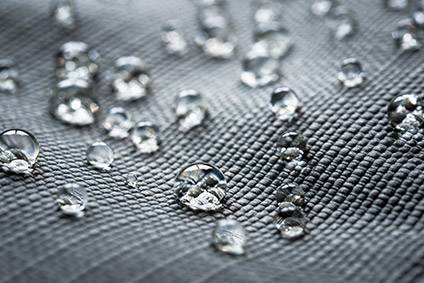
Rain-repelling fluorochemicals used in waterproof clothing can and should be phased out as unnecessary and environmentally harmful, textile researchers have argued in a new study.
Teams from Leeds and Stockholm universities demonstrated how waterproofs using highly fluorinated chemicals are over-engineered for consumers, building in unnecessary resistance to oil and other stains, when only resistance to rainwater is required.
Published in the Journal of Cleaner Production, the research says effective alternatives to harmful fluorochemicals used in durable water repellents (DWRs) for waterproof clothing are readily available.
“Environmentally-friendly and biodegradable solutions are available, but are being resisted by some manufacturers and retailers,” says Richard Blackburn, who heads the Sustainable Materials Research Group at the University of Leeds’ School of Design. He adds this may be due to a lack of information and appropriate technical research demonstrating the effectiveness of sustainable alternatives, as well as a lack of engagement with consumers.
The research surveyed 300 outdoor clothing users – most of whom said they are only looking for water repellency from their gear, not stain resistance.
“Non-fluorinated alternatives are a viable option in all cases where stain repellency is not an essential function,” Dr Blackburn adds. “These alternatives provide excellent rain protection, and there are long-term ecological benefits from phasing out the highly fluorinated chemicals.”

US Tariffs are shifting - will you react or anticipate?
Don’t let policy changes catch you off guard. Stay proactive with real-time data and expert analysis.
By GlobalDataConcerns have been raised about waterproofing fluorochemicals finding their way into the environment during their production, as well as during the life of a garment – through washing and microfibre shedding – and when it is disposed of.
All highly fluorinated chemicals are extremely persistent in the environment, and some have been associated with health problems in humans. The trouble is, some alternatives have also been found to be no safer than their original counterparts.
“We want to help textile producers and retailers to develop better garments that also have a minimal environmental impact,” said co-author Professor Ian Cousins from Stockholm University. “It is important to look into the necessary functionality and durability, otherwise people won’t buy the greener alternatives.”



